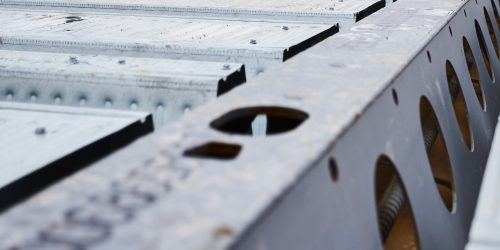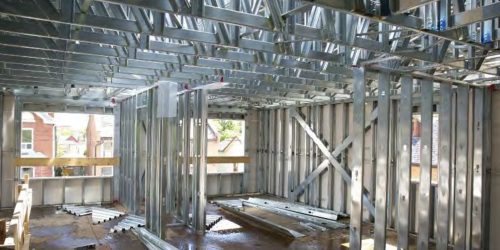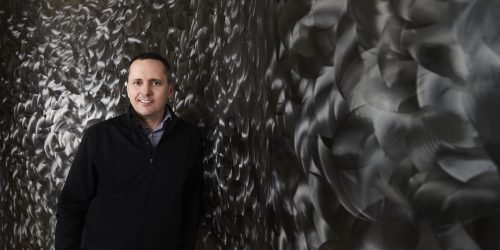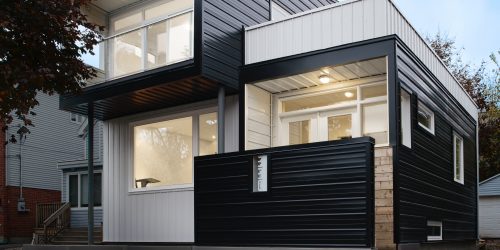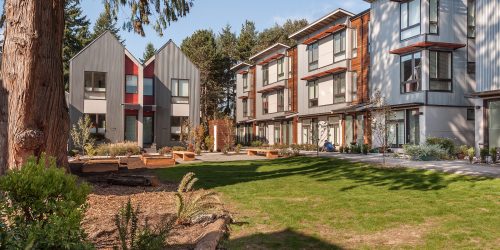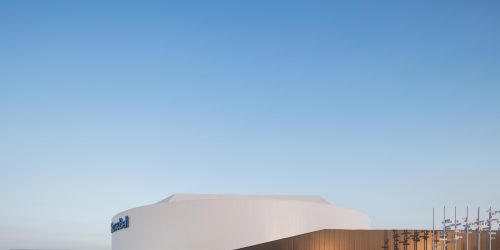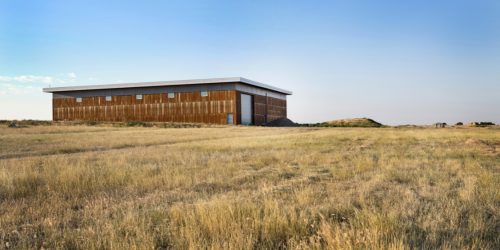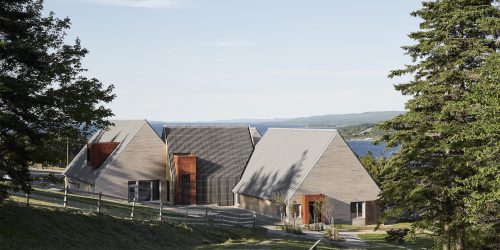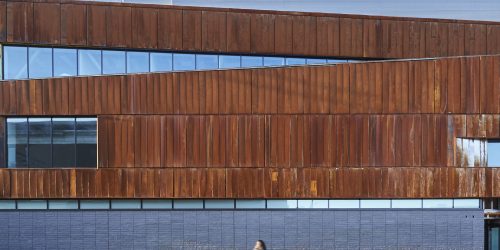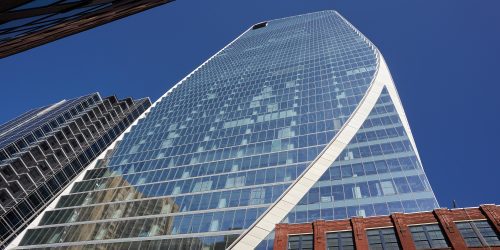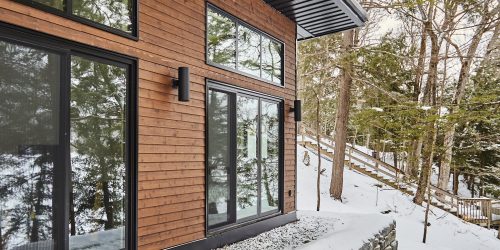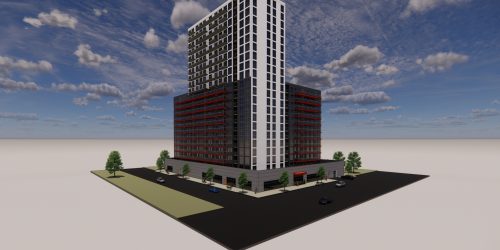A room of one’s own
Modular Pods Create Modern Backyard Offices
Story: Julia Preston
Photography: Daniel Banko
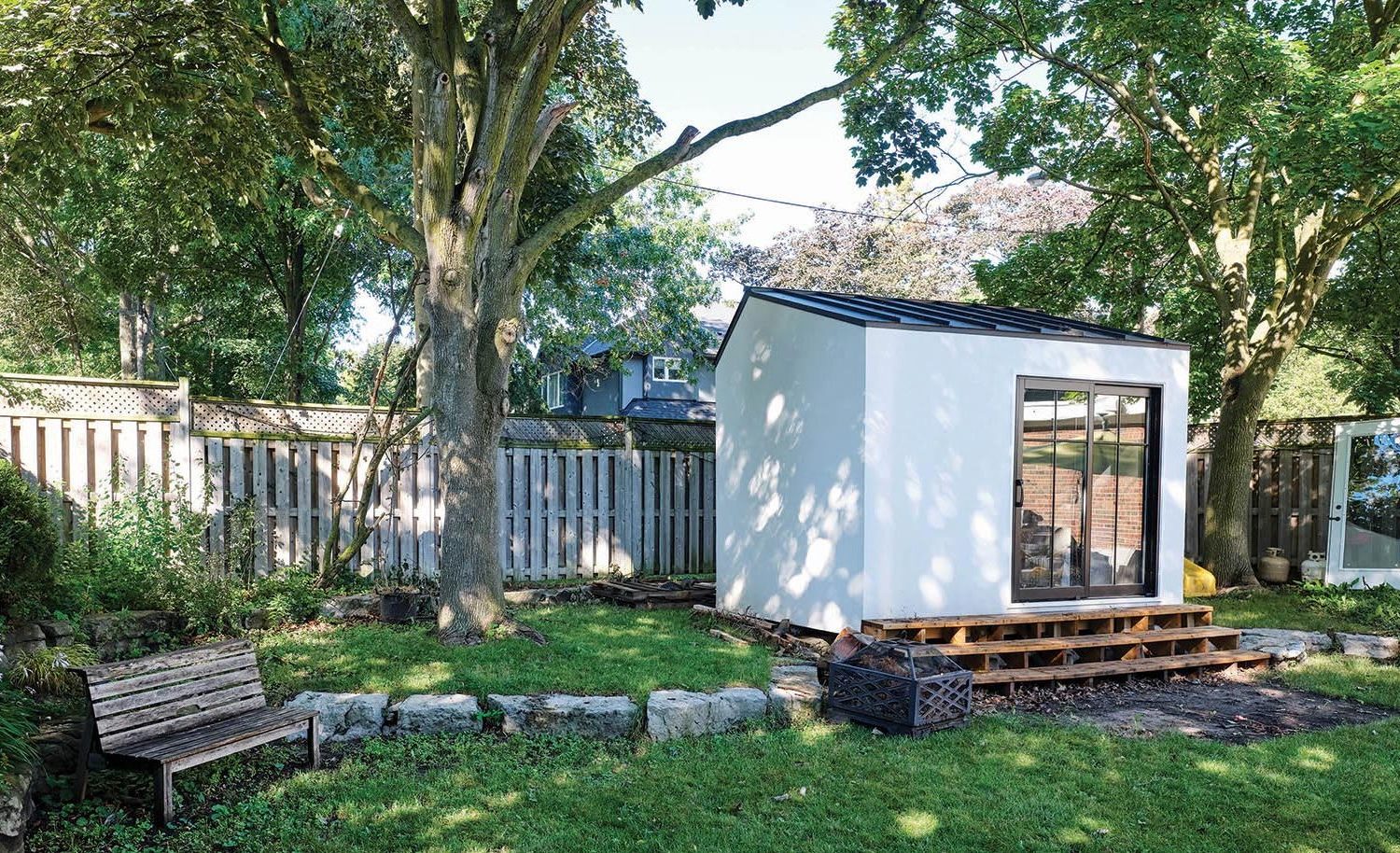
A room of one’s own is necessary, Virginia Woolf tells us, for creativity and productivity. The thousands of people working from home over the last year and a half would surely agree.
But where to find such a space? For Trevor Gilbert of Modeco, the answer was his own backyard.
Modeco specializes in modular, prefabricated “pods.” Products include bathroom pods for multi-unit residential buildings or cell tower closets for telecommunications companies working on 5G expansion.
In the early days of the pandemic, Gilbert and his team designed medical pods that could serve as isolation units and extra beds in temporary hospitals that were being set up to treat COVID patients.
“I’ve got a three-year-old at home. I was on the phone. I was up late trying to get time to myself, and I couldn't get work done,” he recounts. “I thought I can design a separate space for myself.”
Gilbert used his pod model to design a standalone prefabricated office, which he installed in his backyard.
As word spread of Modeco’s office pod, orders started to roll in.
Modeco is rooted in the green building movement. The company name comes from modular and modern combined with economical and ecological.
Gilbert had worked in energy and sustainability consulting, real estate and public equity. From his experience in those fields, he knew that eventually there would be a shift to modular and prefab techniques in residential construction.
He also drew on his experience growing up in his family’s punch and die business, where he saw cold formed steel and roll forming.
“I saw how a manufacturing process works and the benefits of the repeatability and the adaptability of doing steel studs or steel buildings with cold formed steel,” he explains. “That’s what I wanted to do with these pods. Volumetric building. A lot of repeatable processes. Get rid of a lot of the room for error. Really it’s about driving economies of scale and driving efficiencies.”
I saw how a manufacturing process works and the benefits of the repeatability and the adaptability of doing steel studs or steel buildings with cold formed steel.
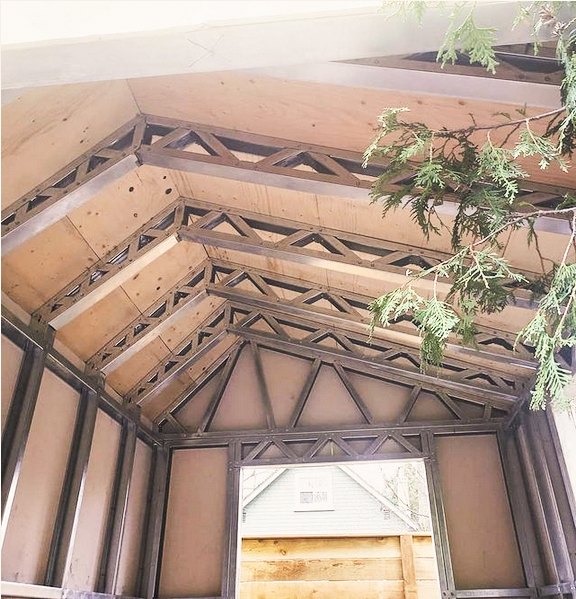
On the sustainability side, Gilbert emphasizes that it’s important to be resilient and adaptive when working in the green building space. Pods can be bathrooms, telecom base stations, hospital rooms or offices. “I knew if I was going to start a business and bring in machinery, it wasn’t going to be set to just one thing, like single eight foot studs. I was going to rely on my own creativity and know if things [changed], there would always be another market that I could fill or hopefully build for.”
For the office pods, Gilbert started with his own personal needs. He wanted the office to have a modern design aesthetic and be a space that would function year round.
Trusses are engineered and designed for snow loads in Ontario, and the pods are fully insulated with Rockwool in the floor and spray foam on the walls and roof.
Units are 8x8, 8x10, or 8x12 and start at $9,500. With Modeco’s modular design, the same trusses, walls and floor bases can be used in different size pods.

We’re essentially like Lego. They’re repeatable builds, which helps speed up the assembly process.
“Every unit is going to be 8 feet wide,” says Gilbert. “It’s the same floor. It’s just built out in a larger section that we assemble together. We’re essentially like Lego. They’re repeatable builds, which helps speed up the assembly process.”
Modeco uses 18 gauge cold formed steel in its designs. The light gauge steel is easy for crews to transport and erect.
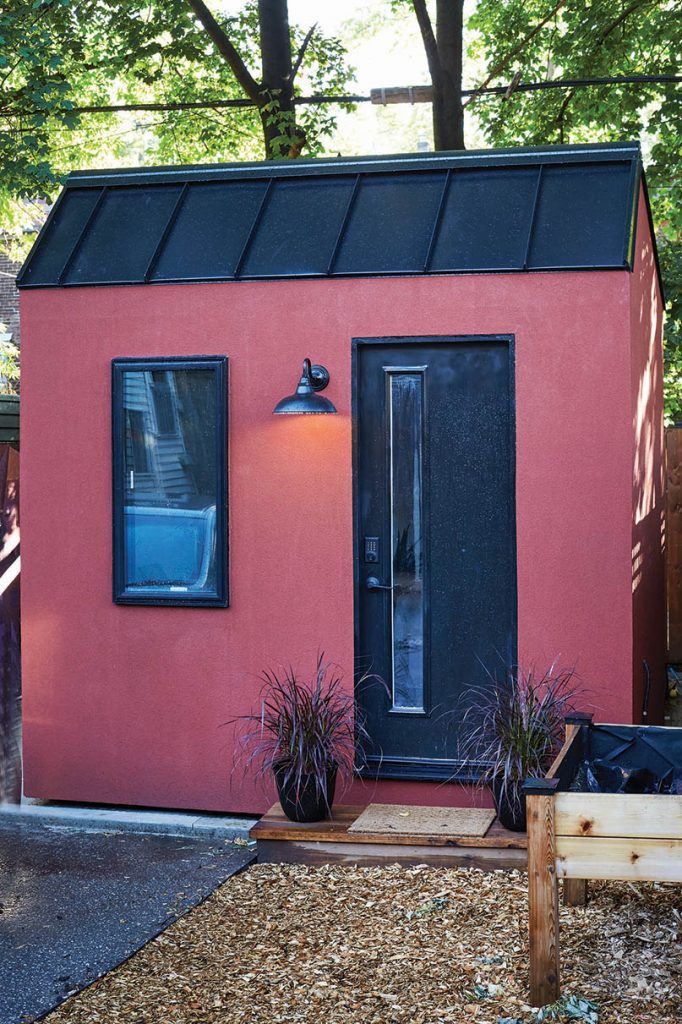
Thanks to precision manufacturing, once on-site the components go together perfectly and quickly. “I’ve yet to have a single challenge where something doesn’t fit or something is little bit off,” says Gilbert.
Once the shell is assembled, Modeco also handles interior finishes, like drywall. “We’ve made some really good partnerships and built really good relationships with other trades,” says Gilbert. Those relationships allow Modeco to ensure builds are completed quickly—ideally in less than two weeks.
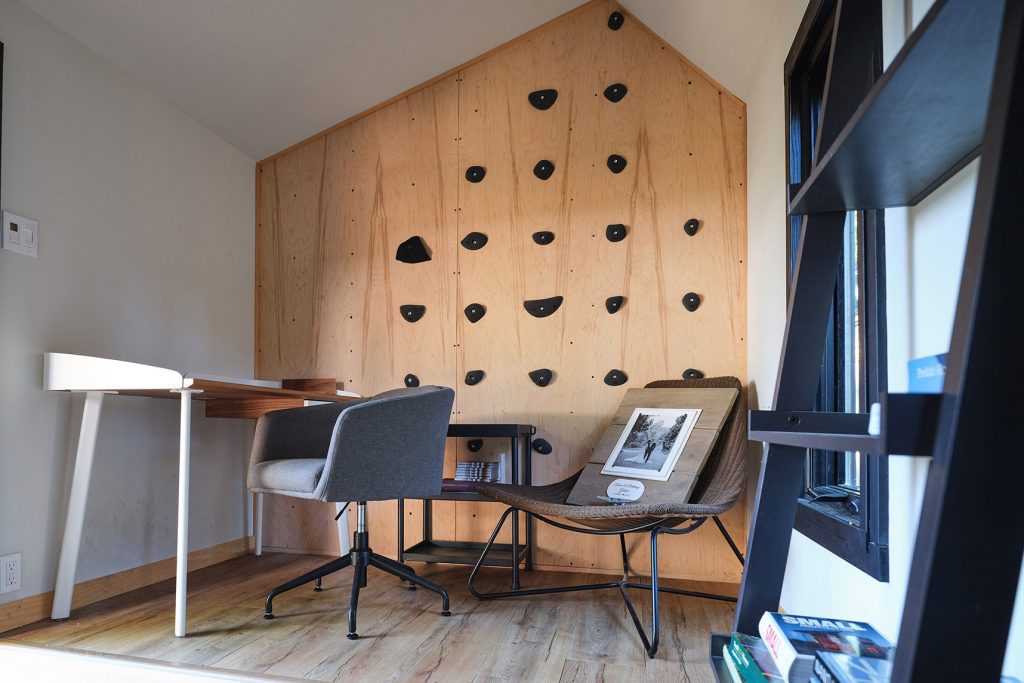
Office pods are sold out for the next year. As demand has grown, Gilbert has focused on maintaining the quality of construction, materials, aesthetics and price. “I want to maintain the expectations of clients, communicate and hopefully deliver on time and deliver a great product.”
Canadian steel has some of the lowest carbon emissions in the world. Steel is precision made. We have some of the best producers here in Canada. It’s mold resistant. Galvanized steel is corrosion-resistant. It’s termite resistant. It really is built to last.
While the pods are in demand, Gilbert admits that the market for steel in residential projects is still limited.
“People are used to doing stick builds, typical wood frame buildings,” he says. “I think there’s a great spot for timber buildings or even hybrid buildings. But I’m a firm believer that trees should be left to do what they do best, which is producing air and oxygen, and we should find a better way to use other resources.”
Modeco’s commitment to sustainability is why Gilbert is committed to steel.
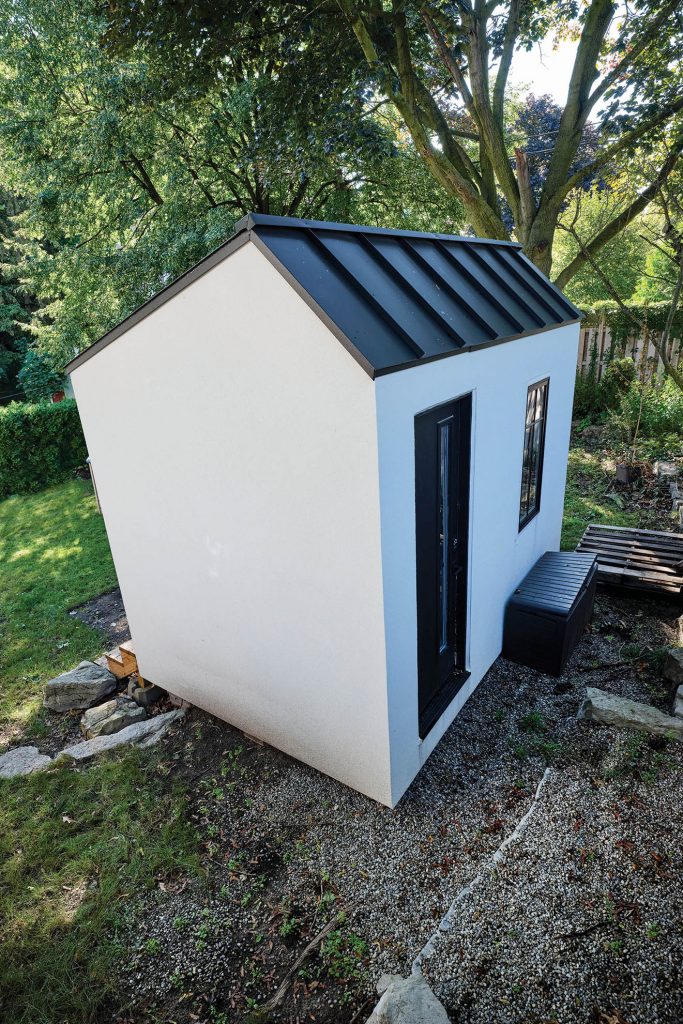
“Canadian steel has some of the lowest carbon emissions in the world. Steel is precision made. We have some of the best producers here in Canada. It’s mold resistant. Galvanized steel is corrosion-resistant. It’s termite resistant. It really is built to last.”
With more of a movement towards green steel, Gilbert hopes that Modeco’s work will contribute to greater sustainability in the steel industry.
He also sees the company advancing the modular and prefab building sectors. “What can be made with cold formed steel and prefab steel construction is limitless. It’s only limited by people’s creativity.”
What can be made with cold formed steel and prefab steel construction is limitless. It’s only limited by people’s creativity.
Looking to the future, Modeco is pursuing larger builds, remote and off-grid projects. Gilbert is focused on continuing to adapt the company’s practices and projects and compete in the green building space.
“At Modeco we want to push the envelope and challenge ourselves with some of these really neat interesting cool builds. We want to create these great creative spaces that are not traditional office places. Where people can do more with less. That make them happy and more productive.”
OFFICE PODS
GENERAL CONTRACTOR:
Modeco Construction // modecoconstruction.com
STEEL:
18ga Cold formed galvanized steel, with steel studs
Painted flat metal sheets for roof from Agway Metals
